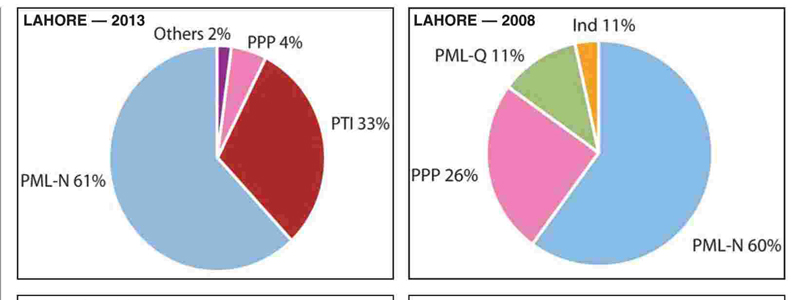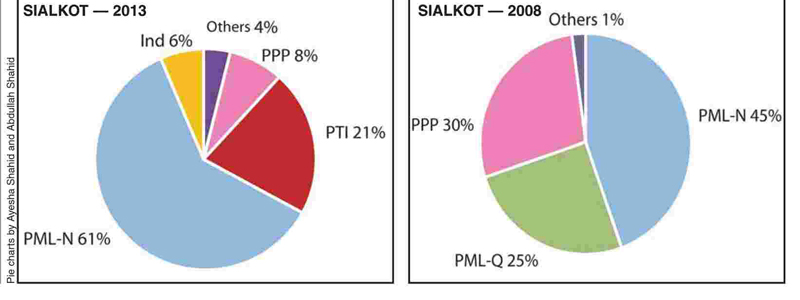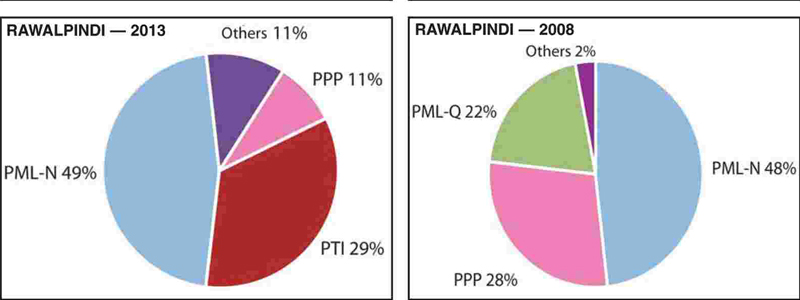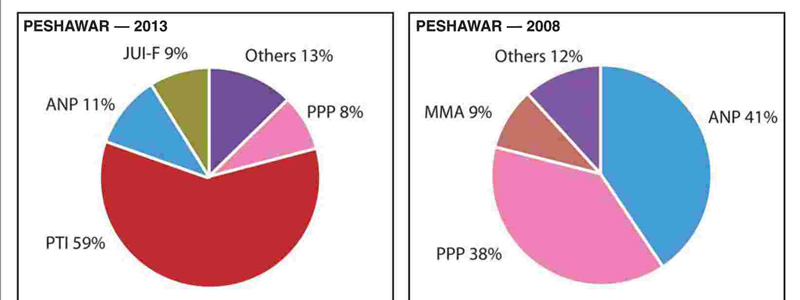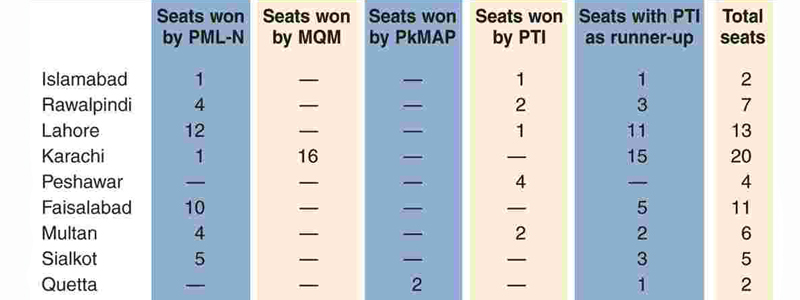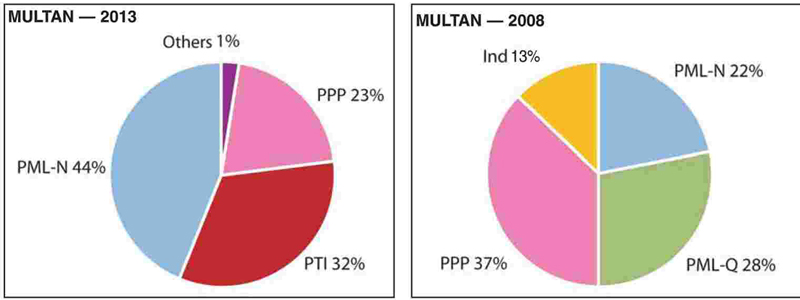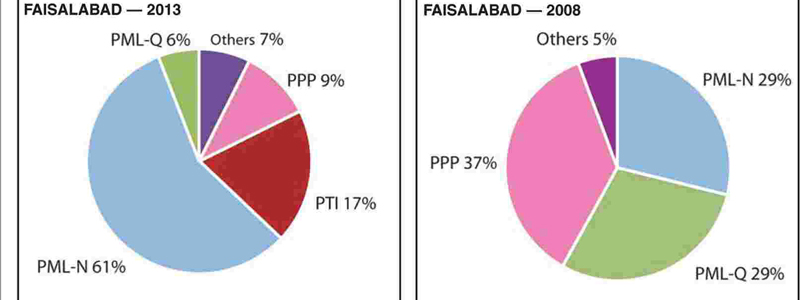To see references mentioned, please peruse slide show of pie charts above.
Tabdeeli aa gayee hai. This was Pakistan Tehreek-i-Insaf’s slogan in the run-up to the general election. Once the results poured in, it appeared as if the change had been limited to Khyber Pakhtunkhwa. For the rest, there was no Naya Pakistan but a Purana Pakistan or a repaired one as some cynics put it.
But a quick look at some of the vote percentages for some of the major urban centres of Pakistan, the change is there. There is no other way to interpret the 2013 election results in Islamabad, Rawalpindi, Lahore, Karachi, Sialkot, Faisalabad, Multan, Sialkot and Quetta.
Predictably in Peshawar, the PTI is the biggest party in terms of vote share while in Quetta it has bagged the fourth position.
In the other seven, it has emerged as the second biggest party, displacing the Pakistan Peoples Party which enjoyed this slot in the 2008 polls. Even in a city such as Karachi, which does not welcome new parties easily, the PTI has displaced the PPP as the city’s second biggest party. This was surprising as for five years, the Awami National Party, the PPP and the Muttahida Quami Movement were involved in a bloody turf battle in Pakistan’s biggest city but at the end, a completely different party has quietly made space for itself.
But perhaps the PTI would not have been able to do this so successfully had it not been for the PPP which created a vacuum to begin with.
Indeed, in Punjab at least, it is obvious that the obliteration of the PML-Q and the rejection of the PPP has allowed the Pakistan Muslim League-Nawaz to increase its vote share and for the PTI to carve out a comfortable niche for itself.
This is especially evident in Faisalabad which in 2008 gave most of its votes to the PPP and where the PML-Q and the PML-N shared the second slot. But clearly, the electricity shortage, which affected the city’s economy, it is said, changed its voters’ mind. In 2013, over 60 per cent opted for the N, and 17 per cent for the PTI. The PPP and the PML-Q were reduced to 15 per cent in total.
In Quetta too, in 2008, the city was dominated by the PPP and the PML-Q. But this was only due to the boycott of the nationalist parties. Their return to the electoral fray in the province means that Quetta too has witnessed a change. Its voters have now opted for the Pakhtunkhwa Milli Awami Party and the Balochistan National Party.
Peshawar, which has embraced the PTI wholeheartedly, however, has viciously rejected the PPP and the ANP.
In other words, the bigger cities of Pakistan have embraced change and a stark one at that. The pie charts say it all.
It needs to be stressed that the results of the major urban centres cannot be seen to be an accurate representation of the country-wide or even province-wise trends.

